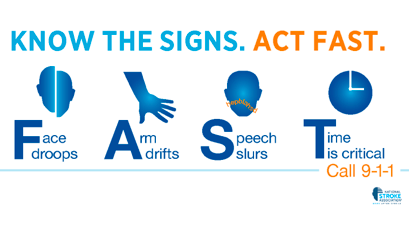Mayo Clinic Minute: Poor sleep can be linked to stroke
A new study finds that sleep problems can increase someone's risk of stroke. Sleep problems can include too little sleep (less than five hours), too much sleep (more than nine hours), poor quality, difficulty getting to sleep or staying asleep, prolonged napping, and snoring and breathing cessation.
In this Mayo Clinic Minute, Dr. Stephen English, a Mayo Clinic vascular neurologist, explains why poor sleep can be linked to stroke.
Sleep is something people spend about a third of their lives doing and for good reason.
"It's so restorative for brain health," explains Dr. English. "Adequate sleep helps to ensure that our blood vessels and our brain cells are healthy and viable for years to come."
But tossing and turning at night can have consequences, including increasing someone's risk of stroke.
"When people have sleep-related disorders, such as sleep apnea, they're getting less sleep or poor-quality sleep. And that leads to reduced oxygen and blood flow to the brain. And that can reduce or make changes over time to the brain that leads to increased risk of stroke or cognitive impairment from vascular disorders to the brain," says Dr. English.
He says it's important to recognize that sleep hygiene, along with diet and exercise, is a modifiable risk, and it's never too late to make changes to reduce your risk.
"The better we are at taking care of the foundational things for our health go a long way to making sure our blood pressure, diabetes, high cholesterol — those are the risk factors. If we can modify those, we can really reduce our risk long term," says Dr. English.
Know the signs
May is Stroke Awareness Month, and Dr. English says it's important to know the signs that someone may be having a stroke and needs emergency evaluation. Use the acronym FAST to help remember warning signs.

- Face. Does the face droop on one side when the person tries to smile?
- Arms. Is one arm lower when the person tries to raise both arms?
- Speech. Can the person repeat a simple sentence? Is speech slurred or hard to understand?
- Time. During a stroke, every minute counts. If you see any of these signs, call 911 or your local emergency.
•Face. Does the face droop on one side when the person tries to smile?
•Arms. Is one arm lower when the person tries to raise both arms?
•Speech. Can the person repeat a simple sentence? Is speech slurred or hard to understand?
•Time. During a stroke, every minute counts. If you see any of these signs, call 911 or your local emergency.
Other signs and symptoms of a stroke, which come on suddenly, include:
•Weakness or numbness on one side of the body, including the face, arm or leg.
•Dimness, blurring or loss of vision, particularly in one eye. Or sudden double vision.
•Sudden, severe headache with no clear cause.
•Unexplained dizziness, unsteadiness or a sudden fall. Especially if dizziness is accompanied by any of the other signs or symptoms.
-
Poor sleep can be linked to stroke
Related posts:
- "Mayo Clinic Minute: How to reduce your stroke risk"
- "Sleep, food, exercise, stress: Why working on one of these can improve the others"
-
Stroke risk: How does sleep factor in?
Sleep problems linked to fivefold rise in stroke risk, study ...
https://edition.cnn.com/2023/04/05/health/sleep-problems-stroke-study-wellness/index.html
Mayo Clinic Explains Brain Tumor
Related posts:
Fish oil for better health; Importance of sleep
FISH oil is made up of fat and oil cells extracted from fish tissue. The fat and oil are condensed into liquid or capsule form for consumption. Fishes that are rich in omega-3 fatty acids such as mackerel, tuna, herring and anchovies are used for this purpose. Fish oil is known to be an effective way to help reduce the risk of heart-related conditions.






